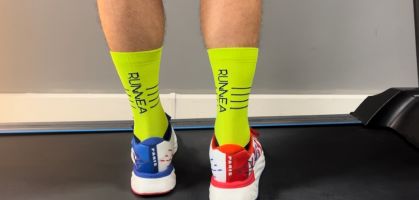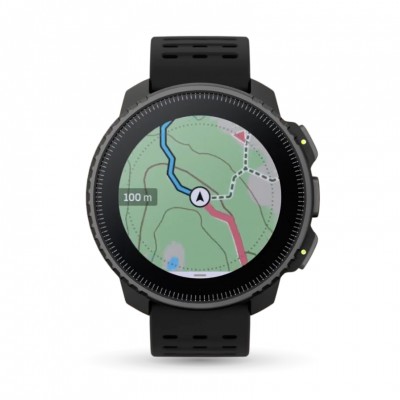Have you set yourself the challenge of going under 2 hours in a half marathon? Sometimes setting a sporting challenge is one of the best options to maintain the motivation to go running, of course this challenge has to be achievable. Therefore, a longer distance over which we normally compete can be a great incentive and if we also try to set ourselves to go under a time even more.
In the following post we will try to contribute a small grain of sand for all those runners who try to go under 2 hours in the half marathon distance.
When facing this distance, sometimes we have doubts about how to change our training to achieve a certain time, and closer to the race, doubting if we are really qualified for the race will give us more than a headache. Next, we will give you some premises to be able to progress in your preparation.
The first thing, and I will never tire of repeating it, is to check our state of health through a medical examination.
How to face the challenge of going under 2 hours in a Half Marathon
Once we have all the guarantees of an optimal state of health to start preparing for this distance, we have to think about how.
Many runners sometimes make a logical deduction such as this: "if for a 10 km I do a weekly average of 35 km for a 21 km I do twice as much". However, this is not the best way to approach the start of the exercise program.
- First of all: Current fitness level
First of all, we need to know what our current state of fitness is, and how do I do that? Well, we will have to perform a test (or several) to assess various parameters that influence our performance. In Runnea Academy for example we propose different alternatives to know your initial state before you start training with us. It is a fundamental data to be able to establish your work needs.
It is essential that the test is performed and repeated several times to be able to update our work zones and observe the progression of our performance. If we lie to the chrono...we will be throwing away future work. Yes, I know, I used to run more, but it needs to be a true reflection of our current state.
No more boring training sessions
Why do I say this? If we want to go under 2 hours in a half marathon and we have been training for a long time and applying continuous runs, enjoying the scenery and greeting everyone... Sorry bad news, it's time to suffer a little .
It is necessary to begin to introduce training, sometimes shorter, where the intensity takes precedence over the time or kilometers we do. Think that to get below a certain mark you have to make your body run at a higher intensity than it has been doing, so if you increase the intensity you will have to reduce the sessions in time.
Continuous runs with gradual increases in intensity, interval training, fartlek or series will be terms with which you will have to become familiar.
One day a week of this type of work should be necessary to reach your goal so it's time to lace up your Running shoes shoes a little tighter.
What about long runs?
Another important thing that we often become obsessed with is the "long run". Well, it is important to accumulate kilometers for such a demanding event as the 21 kilometers, but we don't have to go crazy to put all the kilometers together in one day. 15 kilometers in one day may be more than enough to prepare our legs for the effort ahead.
It is necessary to remember that what is really important is the accumulation of work during the weeks and months of preparation. It is not at all advisable to "stuff ourselves" with kilometers on Sundays.
At the same time, and continuing with the previous idea, it is important to remember a principle of load progression in sports training. Our work program should evolve over time. This means that both the volume (kilometers we do during the week) and the intensity will fluctuate throughout the preparation. It is important to emphasize that these long runs should not start from the first week of the program, the risk of suffering a problem will increase exponentially if we make a sudden change in our preparation.
How do I know if I am ready for my goal?
As we approach the competition we are assailed by doubts and one of the most recurrent is if I'm really ready. This question is difficult to answer, there is no specific test that tells you that you are or are not ready.
It is true that different tests can provide the runner with information about the speed that can be developed in the competition, fitness, etc.
Like everything else, training for a race will depend on a more or less long process and during this process meeting small daily and weekly goals will be the key to be prepared for the competition.
Now you know a little more about the keys to get under that 2 hour time you have set as a goal. This is how we work at Runnea Academy in an individualized way to get to race day in your best possible physical shape. And we complement it with individualized nutrition guidelines. Would you like to train with us?
Read more news about: Running Training






















